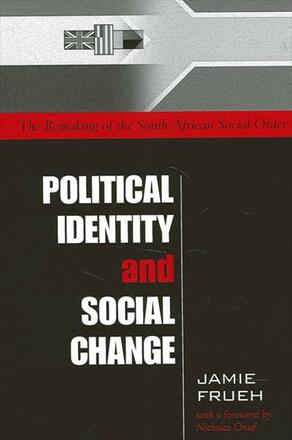
Political Identity and Social Change
The Remaking of the South African Social Order
Alternative formats available from:
Explores issues of political identity and the social changes that ended apartheid in South Africa.
Description
Political Identity and Social Change builds upon the constructivist theory of political identity to explore the social changes that accompanied the end of apartheid in South Africa. To gain a better understanding of how structures of identity changed along with the rest of South Africa's institutions, Frueh analyzes three social and political conflicts: the Soweto uprisings of 1976, the reformist constitutional debates of 1983–1984, and post-apartheid crime. Analyzing these conflicts demonstrates how identity labels function as structures of social discourse, how social activity is organized through these structures, and how both the labels and their power have changed during the course of South Africa's transition. In this way, the book contributes not only to the study of South African society, but also provides lessons about the relationship between identity and social change.
Jamie Frueh is Assistant Professor of Political Science at Bridgewater College.
Reviews
"The strength of the book lies in its analysis and application of constructivist theory. In addition, the author has done valuable primary research through interviews that begin to comprehend the shared perspectives on crime in postapartheid South Africa. " — African Studies Review
"Political Identity and Social Change analyzes one of the most politically explosive issues of the twentieth century—South African apartheid—in new and interesting ways. It also makes innovative use of constructivism as a way of studying change and establishes important linkages between theoretical developments in comparative politics and international relations. " — Randolph B. Persaud, author of Counter-Hegemony and Foreign Policy: The Dialectics of Marginalized and Global Forces in Jamaica